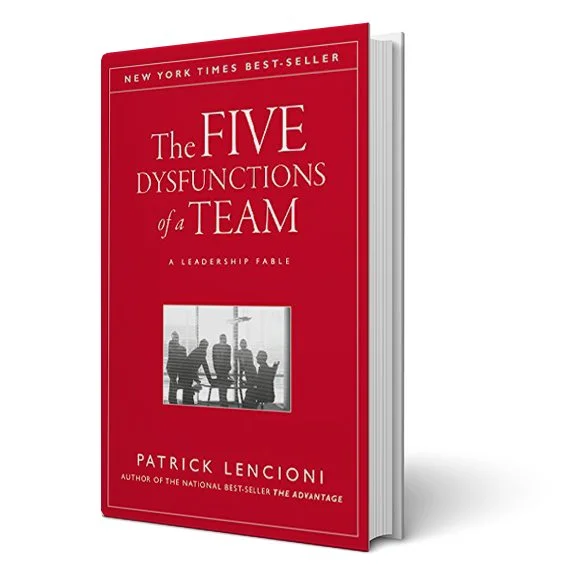One of my children recently got a job she enjoys. It’s in her field of interest, pays well, and has flexible hours. There’s just one thing challenging about it—the workplace drama. When I talk to my child about the job, she’s quick to point out the infighting. This person doesn’t like that person. Some workers don’t like the customers. Some don’t like the boss. Some bring troubles from home and family into the workplace.
My first thought after hearing her concerns was to say, “That’s so common.” Workplace drama is everywhere. A recent study found that the average employee spends 2 hours 26 minutes per day on workplace drama and emotional waste. That’s about 29%—a third—of total work time.[1] Reality Based Leadership comments, “Drama is more than visible squabbles and emotional outbursts at work. Workplace drama includes the ego-based resistance to change, employee disengagement and lack of alignment to strategic initiatives.”[2]
What does the Bible teach leaders about drama? Probably the clearest instruction for Christ-followers is found in Romans 12:18, “If it is possible, as far as it depends on you, live at peace with everyone.” That’s honestly a little passive in today’s culture. It comes across to us as, “Whatever you do, don’t make waves.” But that’s hardly possible. The reality is that “living at peace with everyone” today requires a proactive stance. We have to take specific measures as leaders to build a drama-free workplace. Consider these steps:
Encourage positive behavior. People at work won’t just wake up positive one day. We’re prone to focus on the negative, on those things we don’t like or can’t change. Positive behavior must be encouraged and taught. It won’t manifest itself. Consider some practical exercises you can incorporate into your work routine every week:
Begin staff meeting with a positive note about the company, good feedback from a customer, or an example of how an employee was successful. For instance, Walmart store teams often share positive feedback they receive from customers and workers at their weekly employee meetings.
Personally and publicly thank others who do something positive. For instance, Starbucks employees are encouraged to write something positive or encouraging on cup labels that they hand off to customers.
Write positive interactions into your employee handbook and training. For instance, Disney World employees are taught to create unexpected, personalized experiences for guests, such as providing a free dessert, leading a couple to a front-row seat, or giving small gifts like light-up ears or special pins to make a guest's day special.
Encouraging and practicing positive behavior gets everyone into the mindset that this is something desired and acceptable in the company culture. Positive behavior must be taught, talked about, praised, and exemplified by leaders. Only then can positive interactions versus workplace drama become an expectation.
Have a process for conflict resolution. Disagreements among people is inevitable. Yet many businesses don’t have any formal process to resolve conflict and restore relationships. Create a conflict resolution process and share this with peers and employees early in their tenure. Make sure each person knows who to go to when they have a disagreement, conflict, or grievance. You can find a great process to follow by taking our Conflict Resolution Journey online for free.
When two or more people have an argument at work, it creates tension, not only between them, but with other staff who may feel they need to “take a side” with their coworker or friend. At its heart, conflict resolution is not about making a judgement, but about restoring a relationship. When people disagree, the first thing broken is not their specific issue, but the relationship between them. Drama between people is difficult to solve, because the individuals bring their experiences, biases, and other factors into the disagreement. As a leader, among the most important things you can do when it comes to conflict is for all employees and peers to know that it will be dealt with and not simply “swept under the rug.”
Shift venting to solutions. Venting is complaint that stirs up strife and discontent. It might make a person feel better to voice their concerns, but venting doesn’t solve anything. Help others move from simply complaining to instead find resolution. This begins by having a means to receive venting directly, versus letting it fester. An open door policy and practice of hearing from employees regularly is important. Go beyond saying, “I’m here when you need me,” and instead seek out feedback and ask, “Is there anything troubling you?” Bonus points for creating a feedback mechanism, like an anonymous email address, allowing people to share their concerns privately without fear of retribution.
Have you ever used a pressure-cooker? It’s a strong vessel that is sealed, allowing steam to raise the atmospheric pressure inside. This raises the boiling point of water, allowing cooking at a higher temperature and faster without burning the food. But a pressure cooker has a pressure regulator and vent on the top to keep the pressure from getting too high. If it were just sealed entirely, eventually the pressure would get too high, and the cooker would explode. Instead the regulator lets off steam slowly to keep the cooker working properly. And this is what a leader does when allowing employees and peers to vent. He’s providing a means by which they can let of steam slowly, without the possibility of exploding in anger or hurt later on.
Once you receive feedback, look for solutions, and share your findings either way. For instance, “I’ve heard from many employees they want more flexible hours. So we’re introducing a staggered schedule for morning and afternoons to allow people to choose their shift times.” And if you can’t make a change, share that too, and the reasons behind it. For instance, “Many have expressed concern about our higher insurance deductible. Our rates went up by 20% this year, and this is the very best coverage we can have for our employees while having to eat that increased cost.” It’s not the answer that many wanted, but by taking venting seriously, you’ll gain trust, and prove that you genuinely listen and follow up on concerns.
“As far as it depends on you…” Romans 12:18 does give Christians a command to maintain and grow our relationships with those around us, avoiding controversy and drama where possible. But there’s a caveat, in that sometimes a drama-free workplace doesn’t depend on us, but on others. There are relationships that cannot be healed, and drama that cannot be avoided, and damage that cannot be undone. This is a tall order. But it is “precisely what Paul has in mind, for he says, ‘Do not repay anyone evil for evil’ (Romans 12:17) and ‘Do not take revenge’ (verse 19).”[3]
Remember too, that Peter teaches, “Do not repay evil with evil or insult with insult. On the contrary, repay evil with blessing, because to this you were called so that you may inherit a blessing” (1 Peter 3:9). Doing our best to avoid drama, and channel drama into productive growth, is fulfilling our mission for God on earth, and is a blessing not only to those we are serving, but to our own lives as well.












Workplace drama is everywhere. A recent study found that the average employee spends 2 hours 26 minutes per day on workplace drama and emotional waste. That’s about 29%—a third—of total work time.